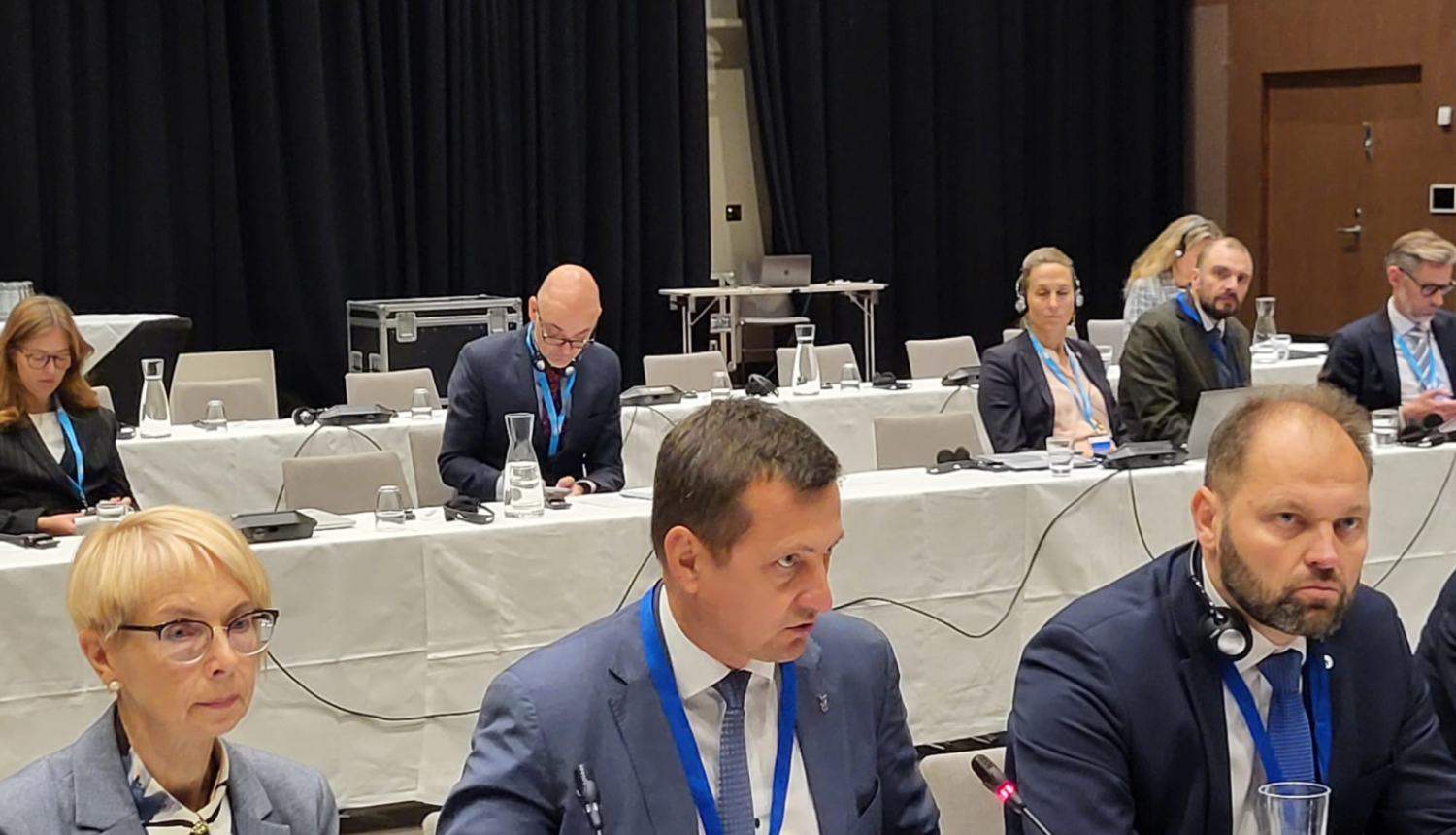On Tuesday, September 30th, Minister for Agriculture Armands Krauze took part in the EU Baltic Sea states’ environment, agriculture, and fisheries ministers’ conference “Our Baltic Sea” in Stockholm (Sweden), where possible solutions for improving the marine ecosystem and fish stocks were discussed.
Ministers assessed the positive results achieved so far for the health of the Baltic Sea and the sustainability of fish stocks through existing EU legislation and national measures, as well as proposed additional solutions to halt the decline of fish stocks, adapt fisheries to the reality of reduced quotas, and prevent misreporting of catches. The “reference point” for the discussions was the joint declaration adopted in 2020 by the environment, blue economy, agriculture and fisheries ministers of the Baltic Sea states together with the Commissioner for Environment, Oceans and Fisheries.
Minister for Agriculture Armands Krauze: “Given the current geopolitical situation and budgetary constraints – in particular, the European Commission’s plan to discontinue the dedicated fisheries fund in the next budget period and significantly reduce support for fisheries and maritime affairs – we are very cautious about taking on any new commitments that under such circumstances would not be feasible. Latvia fully complies with the EU’s fisheries requirements, yet the many measures already introduced are not delivering the desired results. This shows that EU member states’ fishing is not the only factor behind the depleted state of fish populations in the Baltic Sea.”
In the conference discussions, the Minister strongly highlighted Russia’s irresponsible fishing, which in the case of cod, for example, exceeds the total catch of all EU countries combined. Armands Krauze has repeatedly stressed the need to impose market sanctions on imports of Russian fish into the EU in order not to support the aggressor state’s revenue from fisheries.
The Minister also pointed out that a much greater threat to fish stocks in the Baltic Sea – compared to the impact of the strictly limited fishing – is the rapidly growing population of seals and cormorants, the control of which is an urgent task that all Baltic Sea states must address together.
“Another factor weakening fish resources is the widespread practice of large-scale fishing for fishmeal production in the Baltic Sea. In a situation of declining fish stocks, these valuable resources should be used primarily for food production, as we do in Latvia. Considering all of the above, I firmly believe that protective measures affecting our fisheries must strike a balance between environmental goals and the socio-economic well-being and income security of coastal communities. For this reason, I cannot accept the European Commission’s practice of setting catch quotas below the carefully developed scientific recommendations. I am pleased that many of these pressing issues were also raised by ministers from other member states,” said Armands Krauze.
In a conversation with Sweden’s Minister for Rural Affairs Peter Kullgren, Armands Krauze discussed the European Commission’s regulation proposal on fishing opportunities in the Baltic Sea for 2026, as Sweden currently holds the presidency of BALTFISH, the EU Baltic Sea member states’ regional cooperation platform. BALTFISH is the forum where negotiations are held to develop a unified member state position on this proposal, which is scheduled to be adopted at the EU Agriculture and Fisheries Council at the end of October.



